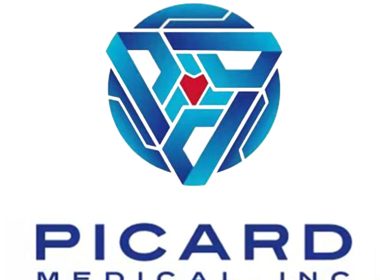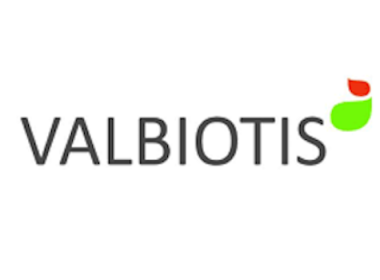Results presented in oral session demonstrated that treatment with ataciguat reduced aortic valve calcium and improved cardiac function and output compared to placebo Download Press Release PDF SOUTH SAN FRANCISCO, Calif., and PRINCETON, N.J., November 7, 2025 — Kardigan, a heart health company modernizing cardiovascular drug development, announced positive Phase 2 […]
Tag: AHA
Medera Presents Late-Breaking Data from First-In-Human Gene Therapy Trial for Heart Failure with Preserved Ejection Fraction at American Heart Association Scientific Sessions 2025
BOSTON, Nov. 09, 2025 (GLOBE NEWSWIRE) — Medera Inc. (“Medera”), a clinical-stage biopharmaceutical company focused on targeting cardiovascular diseases by developing next-generation therapeutics, today announced that positive interim data from its ongoing MUSIC-HFpEF Phase 1/2a clinical trial was presented at the American Heart Association (AHA) Scientific Sessions 2025 taking place November 7-10, 2025, in New Orleans, Louisiana. The late-breaking presentation, titled “First-in-Human Gene Therapy Trial for Patients with Heart Failure with Preserved Ejection Fraction (HFpEF): MUSIC-HFpEF – Modulation of SERCA2a of Intra-myocytic Calcium Trafficking in Heart Failure With Preserved Ejection Fraction,” was delivered by Marat Fudim, MD, MHS, Advanced Heart Failure Specialist and Associate Professor at Duke University Medical Center, during the Featured Science session on Biological and Pragmatic Interventions in Heart Failure: From Present to Future on Sunday, November 9, 2025, at 8:00 AM CST. The MUSIC-HFpEF trial is investigating SRD-002, a one-time gene therapy treatment for heart failure with preserved ejection fraction (HFpEF) delivered through a proprietary minimally invasive intracoronary infusion methodology. SRD-002 utilizes an adeno-associated type 1 virus vector carrying the cardiac isoform of the sarcoplasmic reticulum calcium ATPase pump (SERCA2a) to directly target the molecular pathways underlying the core pathology of HFpEF by enhancing myocardial relaxation and reducing stiffness. The presentation highlighted data from the ongoing trial, which, as of the interim data cutoff date of October 15, 2025, has treated five patients in Cohort A with a low dose of 3E13 viral genomes (vg) who completed the twelve-month follow-up and five patients in Cohort B with a high dose of 4.5E13 vg. SRD-002 demonstrated a favorable safety profile and early clinical benefits. With follow-up ranging from 6 to 12 months, no gene therapy-related serious adverse events have been reported. Patients in the low-dose cohort have shown improvements in New York Heart Association (NYHA) heart failure classification and Kansas City Cardiomyopathy Questionnaire at both 6 and 12 months, with clinically meaningful stabilizations and improvements in pulmonary capillary wedge pressure (PCWP) at rest and peak exercise. The data support progression to the Phase 2 portion of the ongoing trial to test durable disease-modification in HFpEF by SRD-002. Patients in Cohort A and B received higher optimized doses of 3.0E13 vg and 4.5E13 vg, respectively—substantially higher than in prior studies, yet still significantly lower than systemic intravenous (IV) infusion. The dosing strategy was rationally designed and optimized using Medera’s proprietary human-based mini-Heart™ technology platform, including its HFpEF disease model co-developed with AstraZeneca, which has contributed to a US Food and Drug Administration (FDA) Investigational New Drug (IND) clearance and Fast Track Designation. “The data presented today at the AHA Scientific Sessions demonstrate continued safety and clinical benefits with SRD-002,” said Marat Fudim, MD, MHS. “These results reinforce the potential of gene therapy to address the fundamental pathophysiological mechanisms in HFpEF and provide hope for patients with this challenging condition.” “We are pleased to announce the completion of enrollment for this innovative clinical trial and are encouraged by the outcomes observed in the low dose cohort,” said Ronald Li, PhD, CEO and Founder of Medera. “We remain dedicated to advancing this investigational gene therapy, which targets a condition characterized by significant unmet medical needs.” The AHA Scientific Sessions is the premier global event in cardiovascular health and science offering unmatched access to groundbreaking research, dynamic learning, and career-defining connections. For additional information about the MUSIC-HFpEF trial, visit ClinicalTrials.gov using the study identifier NCT06061549. About Heart Failure with Preserved Ejection Fraction (HFpEF) Heart failure (HF) is a global pandemic with an estimated 64.3 million cases worldwide and a rising prevalence trend. Accounting for 50% or more of the overall HF population, HFpEF is an age-related condition that has become increasingly prevalent in recent years. This surge is partly due to better awareness and identification of the condition and partly due to lifestyle changes affecting cardiac myocytes. Individuals affected by HFpEF experience similar morbidity and mortality to patients with HF with reduced ejection fraction (HFrEF). Despite the growing epidemic of this emerging syndrome, HFpEF-focused interventional trials have had little success, except for the use of sacubitril-valsartan (Entresto™) and the sodium glucose transporter-2 (SGLT-2) inhibitor empagliflozin (Jardiance™) for reducing cardiovascular mortality and heart failure hospitalization. However, these agents are not disease-modifying, highlighting the critical need for therapeutic interventions targeting the physiological mechanisms involved in HFpEF. About Medera Inc. Medera is a clinical-stage biopharmaceutical company focused on targeting difficult-to-treat and currently incurable diseases by developing a range of next-generation therapeutics. Medera operates via its two preclinical and clinical business units, Novoheart and Sardocor, respectively. Novoheart capitalizes on the world’s first and award-winning “mini-Heart” Technology for revolutionary disease modelling and drug discovery, uniquely enabling the modelling of human-specific diseases and discovery of therapeutic candidates free from species-specific differences in accordance to the FDA Modernization Act 2.0. Novoheart’s versatile technology platform provides a range of state-of-the-art automation hardware and software as well as screening services, for human-specific disease modelling, therapeutic target discovery and validation, drug toxicity and efficacy screening, and dosage optimization carried out in the context of healthy and/or diseased human heart chambers and tissues. Global pharmaceutical and academic leaders are using Novoheart’s technology platform for their drug discovery and development purposes. The Novoheart platform has facilitated and accelerated the development of Sardocor’s lead therapeutic candidates that are currently in clinical trials. Sardocor is dedicated to the clinical development of novel next-generation therapies for Medera. Leveraging Novoheart’s human-based drug discovery and validation platforms, Sardocor aims to expedite drug development and regulatory timelines for its gene and cell therapy pipeline. Sardocor has received Investigational New Drug (IND) clearances from the FDA for three ongoing AAV-based cardiac gene therapy clinical trials targeting Heart Failure with Reduced Ejection Fraction (HFrEF), Heart Failure with Preserved Ejection Fraction (HFpEF) with the Fast Track Designation, and Duchenne Muscular Dystrophy-associated Cardiomyopathy (DMD-CM) with the Orphan Drug Designation. Additionally, Sardocor’s pipeline includes four preclinical gene therapy and three preclinical small molecule candidates targeting various cardiac, pulmonary, and vascular diseases. For more information, please visit www.medera.bio. Contacts Ally StubinPublic RelationsICR HealthcareAlly.stubin@icrhealthcare.com 646.667.1861 Stephanie CarringtonInvestor RelationsICR HealthcareStephanie.carrington@icrhealthcare.com 646.277.1282
Clinical Data Demonstrating Efficacy of Sotagliflozin in Preserved Ejection Fraction Heart Failure (HFpEF) without Diabetes Presented at American Heart Association (AHA) Annual Scientific Sessions 2025
Oral presentation highlights sotagliflozin’s unique benefits to HFpEF patients in significantly improving cardiac and physical performance, and quality of life Oral presentation highlights sotagliflozin’s unique benefits to HFpEF patients in significantly improving cardiac and physical performance, and quality of life
Thryv Therapeutics to Present at the 2025 American Heart Association Scientific Sessions in New Orleans, LA
MONTREAL, Nov. 5, 2025 /PRNewswire/ – Thryv Therapeutics Inc., a clinical-stage biotechnology company advancing a series of novel serum glucocorticoid inducible kinase 1 (SGK1) inhibitors for inherited cardiac arrhythmias, cardiometabolic diseases, and cardiomyopathies, today announced…
Picard to Showcase its Total Artificial Heart at the Annual Meeting of the American Heart Association 2025
TUCSON, Ariz., Nov. 03, 2025 (GLOBE NEWSWIRE) — Picard Medical, Inc. (NYSE American: PMI) (“Picard” or the “Company”), parent company of SynCardia Systems LLC, maker of the world’s first U.S. and Canadian commercially-approved total artificial heart, today announced it will exhibit at the annual meeting of the American Heart Association (AHA) being held November 7th through 10th in New Orleans, Louisiana. At the annual meeting of the AHA, Picard will showcase its SynCardia™ Total Artificial Heart (or “STAH”), which is the most widely used and extensively studied artificial heart in the world, at booth #3408. Patrick NJ Schnegelsberg, Chief Executive Officer of Picard Medical, Inc. commented, “We are excited to attend the annual meeting of the American Heart Association to share the latest developments related to our innovative and life-saving artificial heart, the Syncardia Total Artificial Heart, or STAH. We look forward to having discussions with physicians and attendees at AHA about patient eligibility, the latest clinical data and helpful resources, and sharing insights from patients who have had real-world experiences with the STAH.” About the American Heart Association (AHA) and its Annual Meeting #AHA25 brings together the full spectrum of cardiovascular science—from foundational science and translational breakthroughs to clinical trials and real-world application. Each year, thousands of professionals come together to exchange ideas, build lasting collaborations, and accelerate progress in cardiovascular health on a global scale. The AHA has grown into the nation’s oldest and largest voluntary organization dedicated to fighting heart disease and stroke. A shared focus on cardiovascular health unites its more than 35 million volunteers and supporters as well as its more than 3,300 employees. Learn more here. The AHA has invested more than $6 billion in research, making it the largest not-for-profit funding source for cardiovascular and cerebrovascular disease research next to the federal government. About Picard Medical and SynCardia Picard Medical, Inc. is the parent company of SynCardia Systems, LLC (“SynCardia”), the Tucson, Arizona–based leader with the only commercially available total artificial heart technology for patients with end-stage heart failure. SynCardia develops, manufactures, and commercializes the SynCardia Total Artificial Heart (“STAH”), an implantable system that assumes the full functions of a failing or failed human heart. It is the first artificial heart approved by both the FDA and Health Canada, and it remains the only commercially available artificial heart in the United States and Canada. With more than 2,100 implants performed at hospitals across 27 countries, the SynCardia Total Artificial Heart is the most widely used and extensively studied artificial heart in the world. For additional information about Picard Medical, please visit www.picardmedical.com or review the Company’s filings with the U.S. Securities and Exchange Commission at www.sec.gov. Forward-Looking Statements This release may contain forward-looking statements within the meaning of federal securities laws. Such statements are based on current expectations and are subject to risks and uncertainties that may cause actual results to differ materially. The Company undertakes no obligation to update or revise any forward-looking statements. Contact: InvestorsEric RibnerManaging DirectorLifeSci Advisors LLCeric@lifesciadvisors.com Picard Medical, Inc./SynCardia Systems, LLCIR@picardmedical.com General/MediaBrittany Lanzablanza@syncardia.com
Heartflow to Present Late-Breaking Data Advancing AI-Driven Heartflow Plaque Analysis at AHA 2025
Data to highlight the precision of AI-powered Heartflow Plaque Staging framework in predicting long-term cardiovascular outcomesMOUNTAIN VIEW, Calif., Nov. 03, 2025 (GLOBE NEWSWIRE) — Heartflow, Inc. (Heartflow) (Nasdaq: HTFL), the leader in AI technology for coronary artery disease (CAD), today announced it will present new late-breaking data highlighting the clinical and economic value of Heartflow Plaque Analysis at the American Heart Association (AHA) Scientific Sessions 2025, taking place November 7-10 in New Orleans. The late-breaking Plaque Analysis data evaluate risk prediction with Heartflow Plaque Staging* and will remain under embargo until the featured science presentation, “Coronary CT Angiography Plaque as a Predictor of Death, Cardiovascular Death and Myocardial Infarction” on Sunday, November 9, at 12:30 p.m. CST. Timothy Fairbairn, M.D., principal investigator for the FISH&CHIPS study, Liverpool Heart and Chest Hospital NHS Foundation Trust, and Associate Professor at the University of Liverpool, will present the study. With seven abstracts at this year’s AHA Scientific Sessions, Heartflow is significantly advancing the scientific foundation for Plaque Analysis as a key advance guiding cardiovascular risk prediction and personalized treatment. As the established leader in AI-driven coronary care, Heartflow continues to invest in high-quality research to benefit all stakeholders in the healthcare system, fully demonstrating the utility of the Heartflow One platform in transforming CAD into a manageable disease. “Heartflow’s presentations at the AHA Scientific Sessions reflect our ongoing investment in clinical research to validate Plaque Analysis with Heartflow Plaque Staging, empowering cardiologists to personalize treatment plans using non-invasive precision technology,” said Campbell Rogers, M.D., F.A.C.C., Chief Medical Officer at Heartflow. “By providing AI-driven insights into plaque quantification, we’re helping clinicians see the full picture of coronary artery disease and building more effective pathways for diagnosis, management, and prevention.” Heartflow’s data presentations at AHA will include: Coronary CT Angiography Plaque as a Predictor of Death, Cardiovascular Death and Myocardial Infarction Session: Pan Vascular Interventions: Anatomy and Interventions Across Various Vascular BedsPresenter: Timothy Fairbairn, M.D.Date: Sunday, November 9Time: 12:30-12:38 p.m. CSTLocation: Clinical Science Zone 1‚ Moderated Digital Poster 5 Improvements in Diagnostic and Therapeutic Cardiovascular Risk Assessment Through Total Plaque Volume Burden: An Analysis of the FISH&CHIPS StudyFinalist for the Quest Diagnostics Early Career Investigator Award for Preventive Cardiovascular Medicine Research Session: Quest Diagnostics Early Career Investigator Award for Preventive Cardiovascular Medicine Research CompetitionPresenter: Shyon Parsa, M.D., Internal Medicine Resident at Stanford University HospitalDate: Sunday, November 9Time: 10:30-10:40 a.m. CSTLocation: 208-209 Population Changes in AI Coronary Plaque Volumes over 7 Years Session: New Frontiers in Cardiovascular Risk: Trends and Drivers in Cardiovascular Mortality and OutcomesPresenters: Allen Taylor, M.D., F.A.C.C., F.A.H.A., Chairman of Cardiology, MedStar Heart and Vascular Institute and Professor of Medicine at Georgetown University and Matthew Budoff, M.D., Professor of Medicine at the David Geffen School of Medicine at the University of California Los Angeles (UCLA) Medical CenterDate: Saturday, November 8Time: 10:30-11:30 a.m. CSTLocation: Population Science Zone AI-enabled Plaque Phenotype Analysis of Coronary Computed Tomography Angiography Findings in Patients with Nonacute Chest Pain using FFRCT: Results from the PRECISE Trial Session: Imaging Insights from Multicenter Clinical TrialsPresenter: Jonathon Leipsic, M.D., F.R.C.P.C., M.S.C.C.T., Professor and Chair of Radiology and Professor of Cardiology at the University of British ColumbiaDate: Saturday, November 8Time: 11:34-11:39 a.m. CSTLocation: Clinical Science Zone 1‚ Moderated Digital Poster 8 Cost-Effectiveness of AI-Enabled Coronary Plaque Analysis for Management of Stable Coronary Artery Disease Session: Transforming Cardiac Imaging and Risk Assessment Through AIPresenter: Daniel D’Attilio, Director, Healthcare Economics and Outcomes Research, HeartflowDate: Saturday, November 8Time: 12:36-12:41 p.m. CSTLocation: Clinical Science Zone 1‚ Moderated Digital Poster 4 Statin Use Mitigates Androgen Deprivation Therapy-Associated Coronary Atherosclerosis in Prostate Cancer: A Secondary Analysis of the REVELUTION Randomized Clinical Trial Session: Cardiac Amyloidosis and Cardiometabolic ConundrumsPresenter: Marly van Assen, Ph.D., Co-director of the Translational Laboratory for Cardiothoracic Imaging and Artificial Intelligence, Head of CT and AI Research, and Assistant Professor, Emory UniversityDate: Saturday, November 8Time: 2:27-2:32 p.m. CSTLocation: Clinical Science Zone 2‚ Moderated Digital Poster 19 Accelerated Coronary Atherosclerosis Following Relugolix Versus Leuprolide Androgen Deprivation Therapy in Men with Prostate Cancer (REVELUTION): An Open-Label Randomized Controlled Trial Session: Where Cancer and Cardiovascular Disease Collide: Risks, Disparities, and Evolving EvidencePresenter: Marly van Assen, Ph.D., Co-director of the Translational Laboratory for Cardiothoracic Imaging and Artificial Intelligence, Head of CT and AI Research, and Assistant Professor, Emory UniversityDate: Saturday, November 8Time: 3:15-3:20 p.m. CSTLocation: Population Science Zone‚ Moderated Digital Poster 12 Heartflow invites AHA attendees to a Heart Theater Symposium exploring how AI-driven plaque quantification is transforming CAD management: AI-Plaque Analysis: The Paradigm Shift in CAD Management Moderator: Seth Martin, M.D., M.H.S., FAHA, Professor of Medicine and Cardiologist at Johns Hopkins School of MedicinePanelists: Fatima Rodriguez, M.D., F.A.C.C., Section Chief of Preventive Cardiology and Associate Professor in the Division of Cardiovascular Medicine at Stanford University, and Ron Blankstein, M.D., Director of Cardiac Computed Tomography at Brigham and Women’s Hospital and Professor of Medicine at Harvard Medical SchoolDate: Sunday, November 9Time: 3:15-4:00 p.m. CSTLocation: Heart Theater 1 *Heartflow Plaque Analysis is an FDA-cleared device. Heartflow Plaque Staging is an investigational-only framework and its safety and effectiveness have not been reviewed by the FDA. About Heartflow’s Technology and ResearchHeartflow’s technology is redefining precision cardiovascular care through clinically-proven AI and the world’s largest coronary imaging dataset. Heartflow has been adopted by more than 1,400 institutions globally and continues to strengthen its commercial presence to make this cutting-edge solution more widely available to an increasingly diverse patient population. Backed by ACC/AHA guidelines and supported by more than 600 peer-reviewed publications, Heartflow has redefined how clinicians manage care for nearly 500,000 patients worldwide. Key benefits include: Proprietary data pipeline: Built from more than 110 million annotated CTA images, Heartflow’s data foundation powers advanced AI models that deliver highly accurate, reproducible insights across diverse patient populations.Extensive clinical and real-world validation: Heartflow’s AI-driven solutions have been validated through clinical evidence in over 100 studies assessing over 365,000 patients. Proven in real-world practice with reproducibility and accuracy, Heartflow’s coronary CTA image acceptance rates exceed 96%.Seamless clinical integration via upgraded workflow: Heartflow delivers final quality-reviewed analyses instantly upon order, enabling clinicians to move from diagnosis to decision without delay.Quality system, global security and patient-data integrity compliance: Heartflow meets or exceeds leading international standards, including HITRUST, SOC 2 Type 2, GDPR, HIPAA, CCPA, ISO 13485, and ISO 27001. About Heartflow, Inc.Heartflow is transforming coronary artery disease from the world’s leading cause of death into a condition that can be detected early, diagnosed accurately, and managed for life. The Heartflow One platform uses AI to turn coronary CTA images into personalized 3D models of the heart, providing clinically meaningful, actionable insights into plaque location, volume, and composition and its effect on blood flow — all without invasive procedures. Discover how we’re shaping the future of cardiovascular care at heartflow.com. Media ContactElliot Levyelevy@heartflow.com Investor ContactNick Laudiconlaudico@heartflow.com
MDisrupt Welcomes American Heart Association Professional Members to Its Platform, Unlocking Faster Innovation in Heart and Brain Health
The addition of cardiology and neurology experts helps health companies scale evidence-based health products with confidence AUSTIN, Texas, Sept. 25, 2025 /PRNewswire/ — MDisrupt announced today that it is onboarding professional members of the American Heart Association® to its expert…
Northwell cardiologist, leader in health equity named American Heart Association’s 2022 Physician of the Year
Dr. Jennifer H. Mieres, an expert in cardiovascular disease of women and patient-centered health care advocacy, will receive the award at an event June 28 NEW HYDE PARK, NY – Jennifer H. Mieres, MD, senior vice president of Northwell Health’s Center for Equity of Care and the health system’s first […]
Solstice Supports the American Heart Association’s Broward Heart Walk
Funds raised by Solstice’s Heart Walk team support the lifesaving work of the American Heart Association. PLANTATION, Fla., March 15, 2022 (GLOBE NEWSWIRE) — Solstice sponsored the finish line at the American Heart Association (AHA) Broward Heart Walk on Sunday, March 13. The Heart Walk, held annually at Nova Southeastern […]
Valbiotis Announces Positive Preclinical Results for TOTUM•070 in Hypercholesterolemia, Selected and Presented at the American Heart Association (AHA) Annual Meeting
Two in-depth studies on TOTUM•070 conducted jointly by Valbiotis’ preclinical platform and the University of Leiden (Netherlands), have been selected by the annual meeting of the AHA, the leading American learned society in the cardiovascular field. Results showing a dose-dependent reduction of 38 to 47% of “bad” cholesterol*1 (including LDL cholesterol) […]











